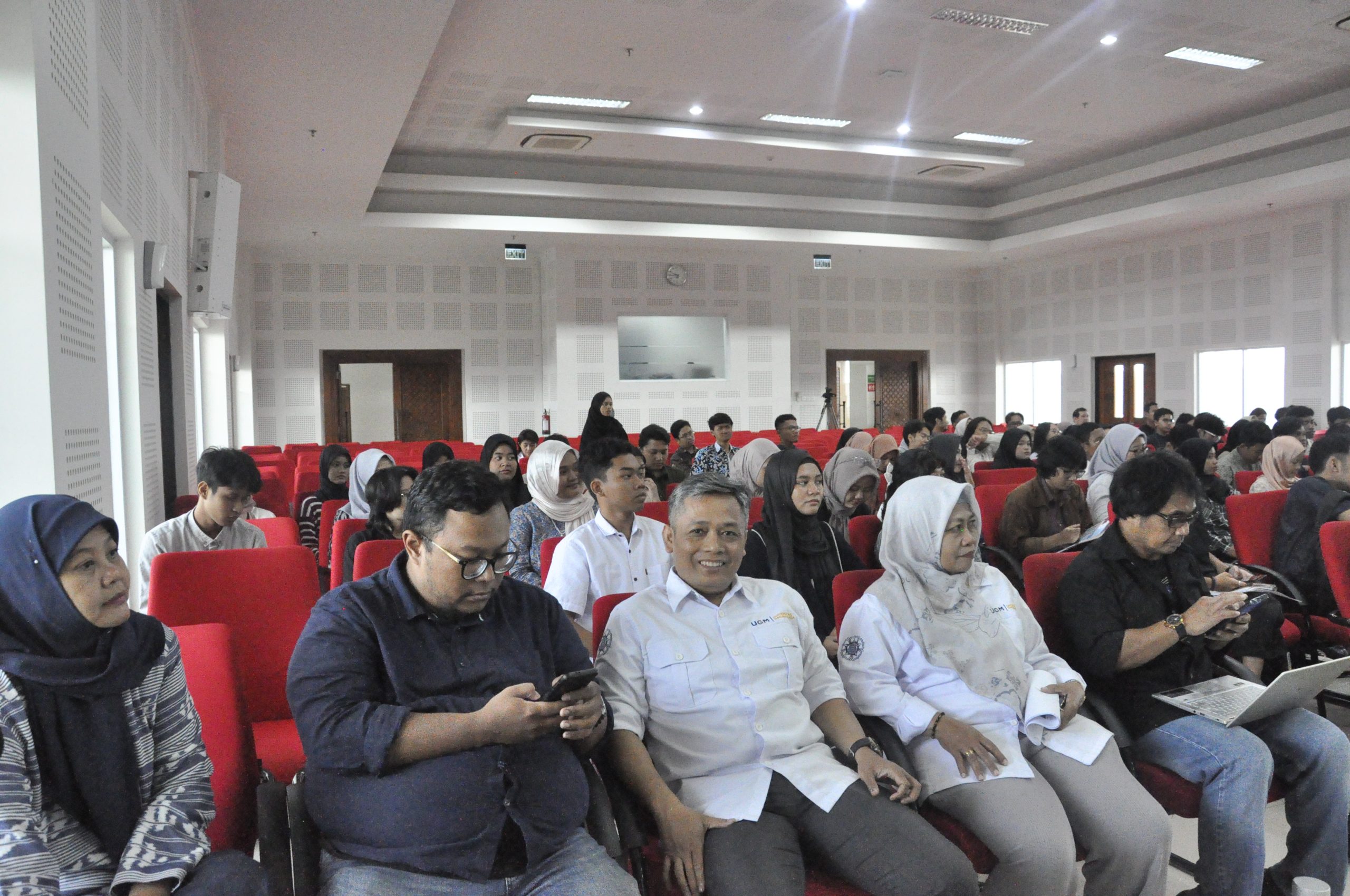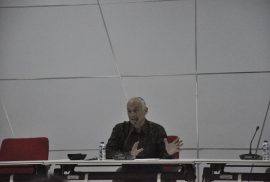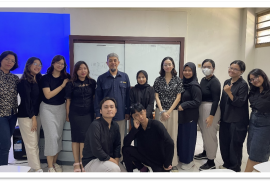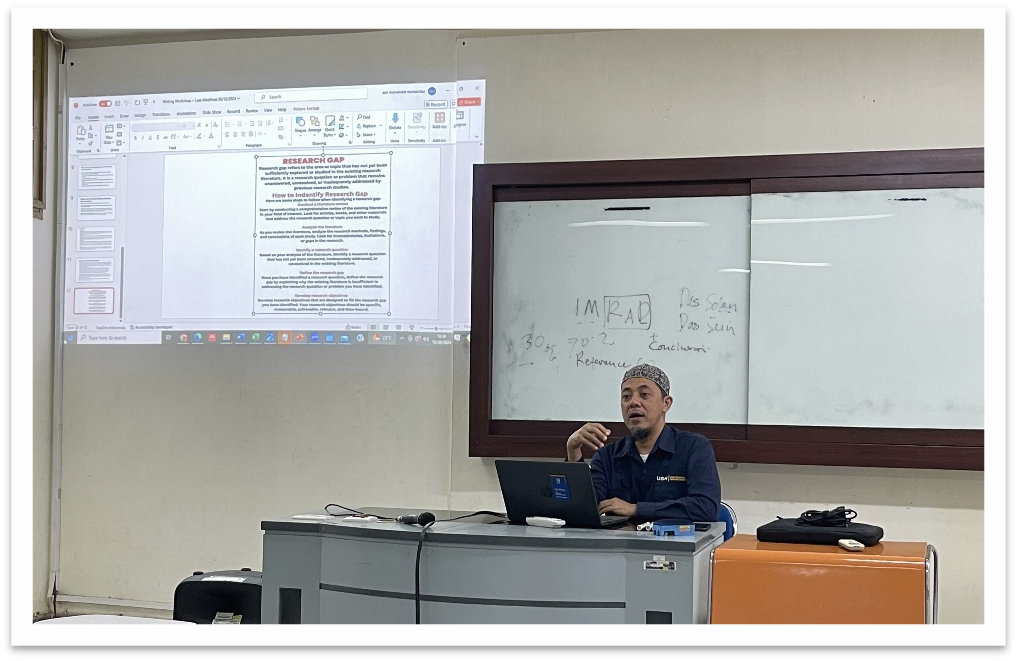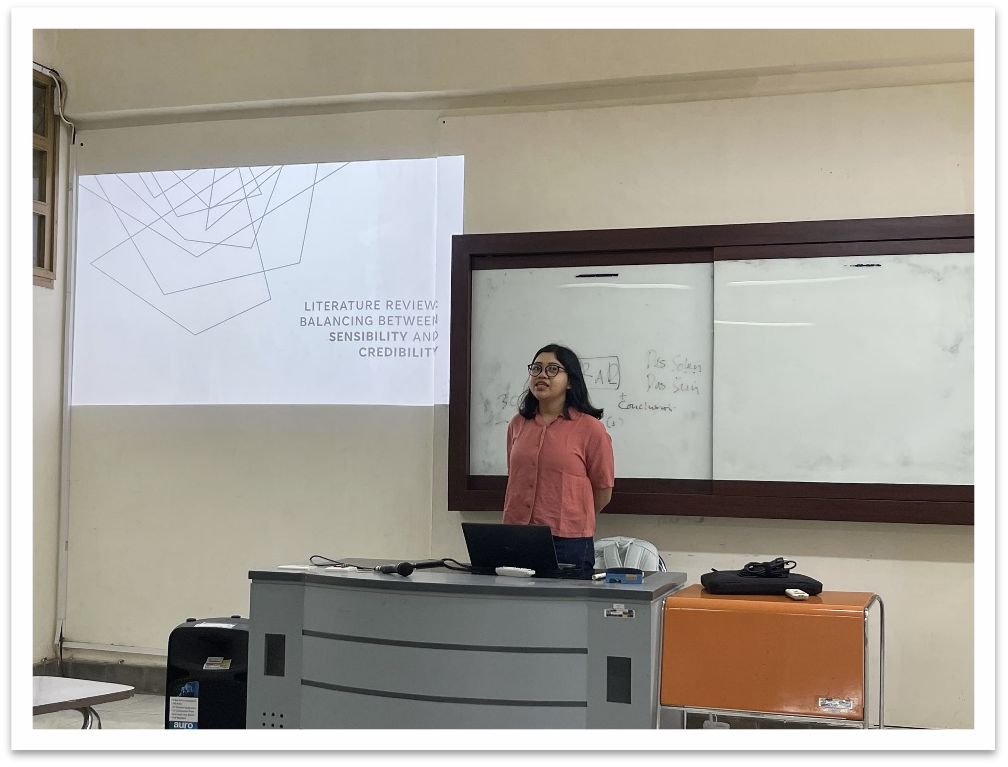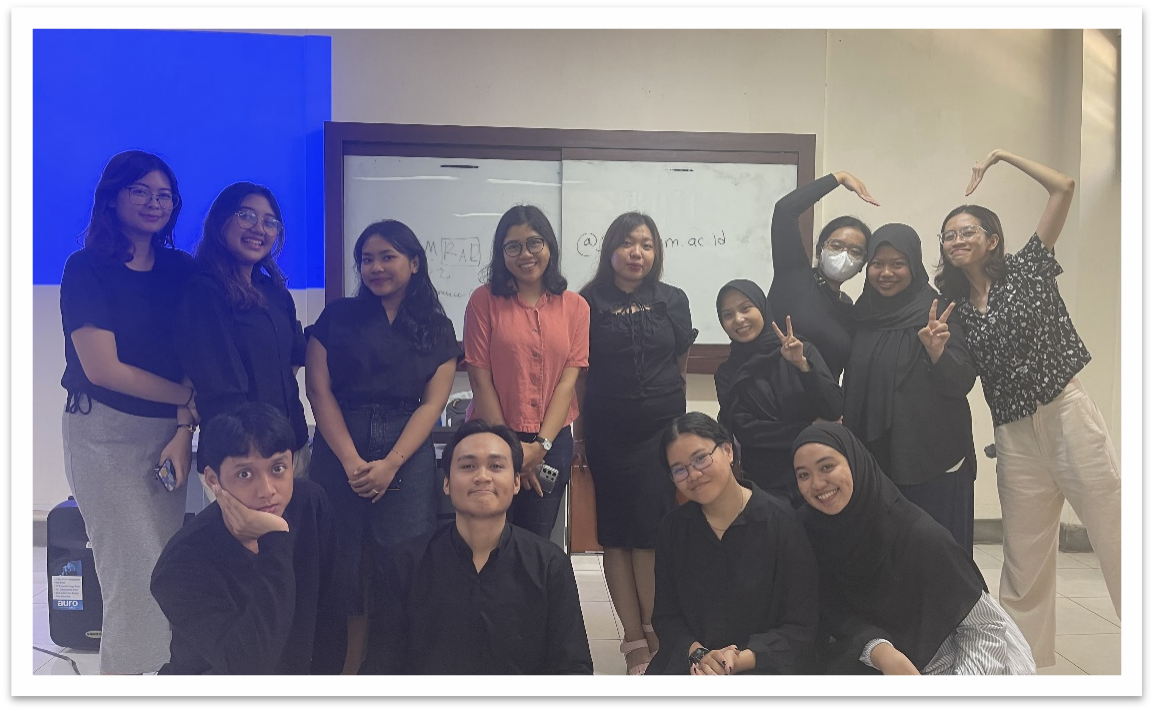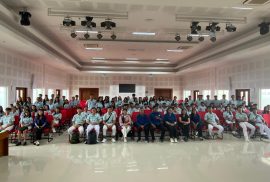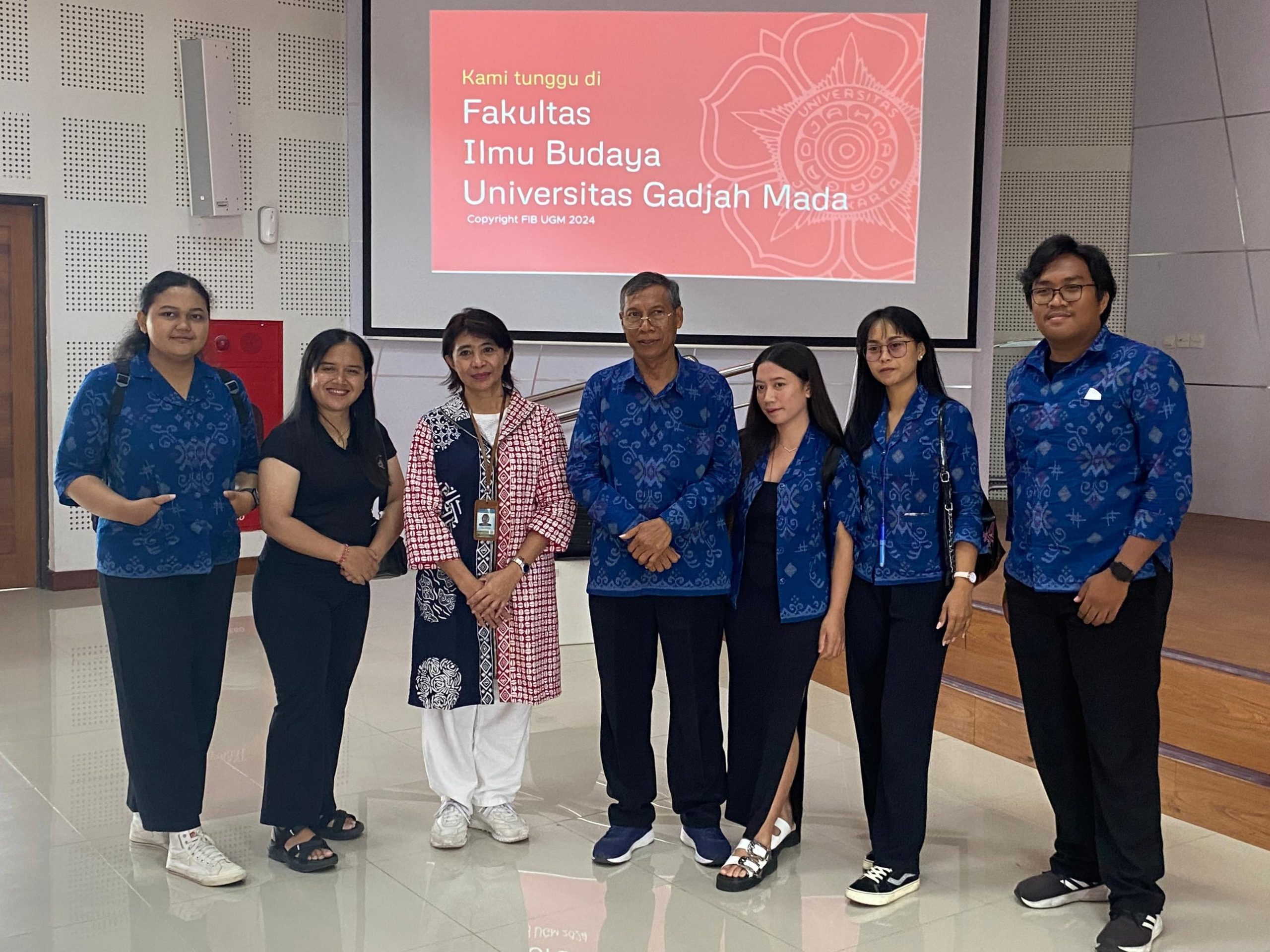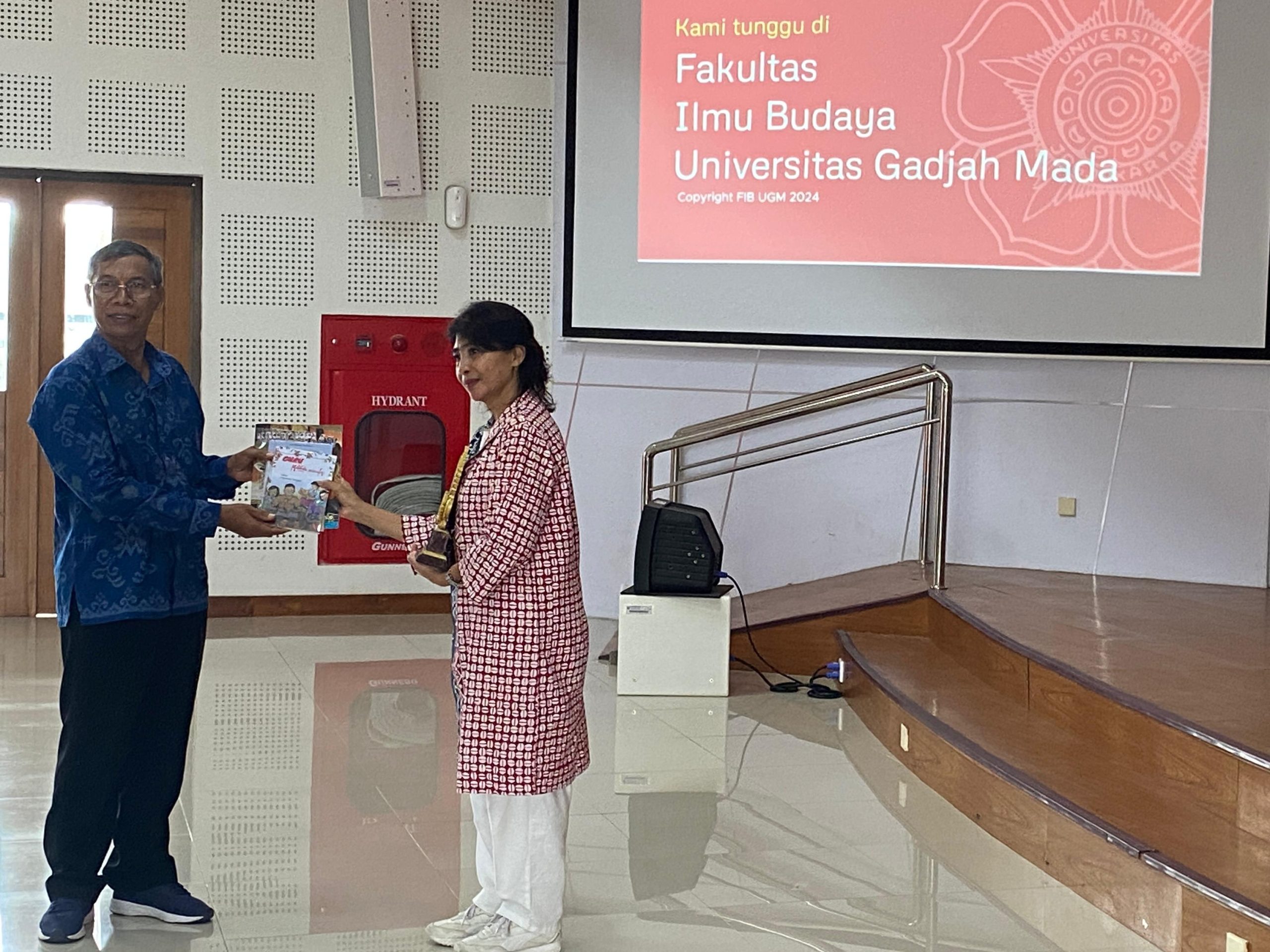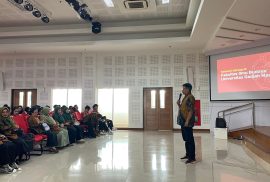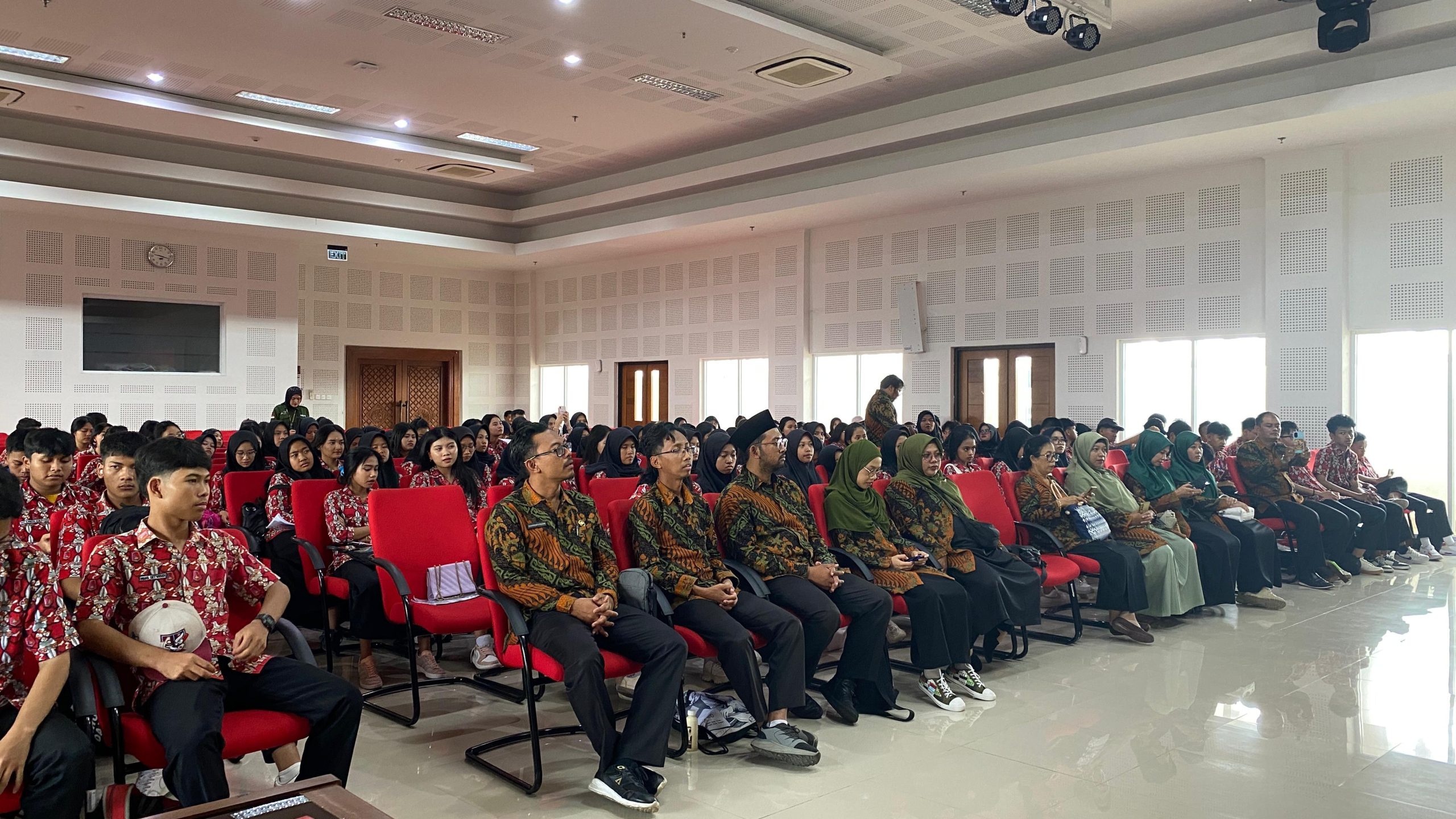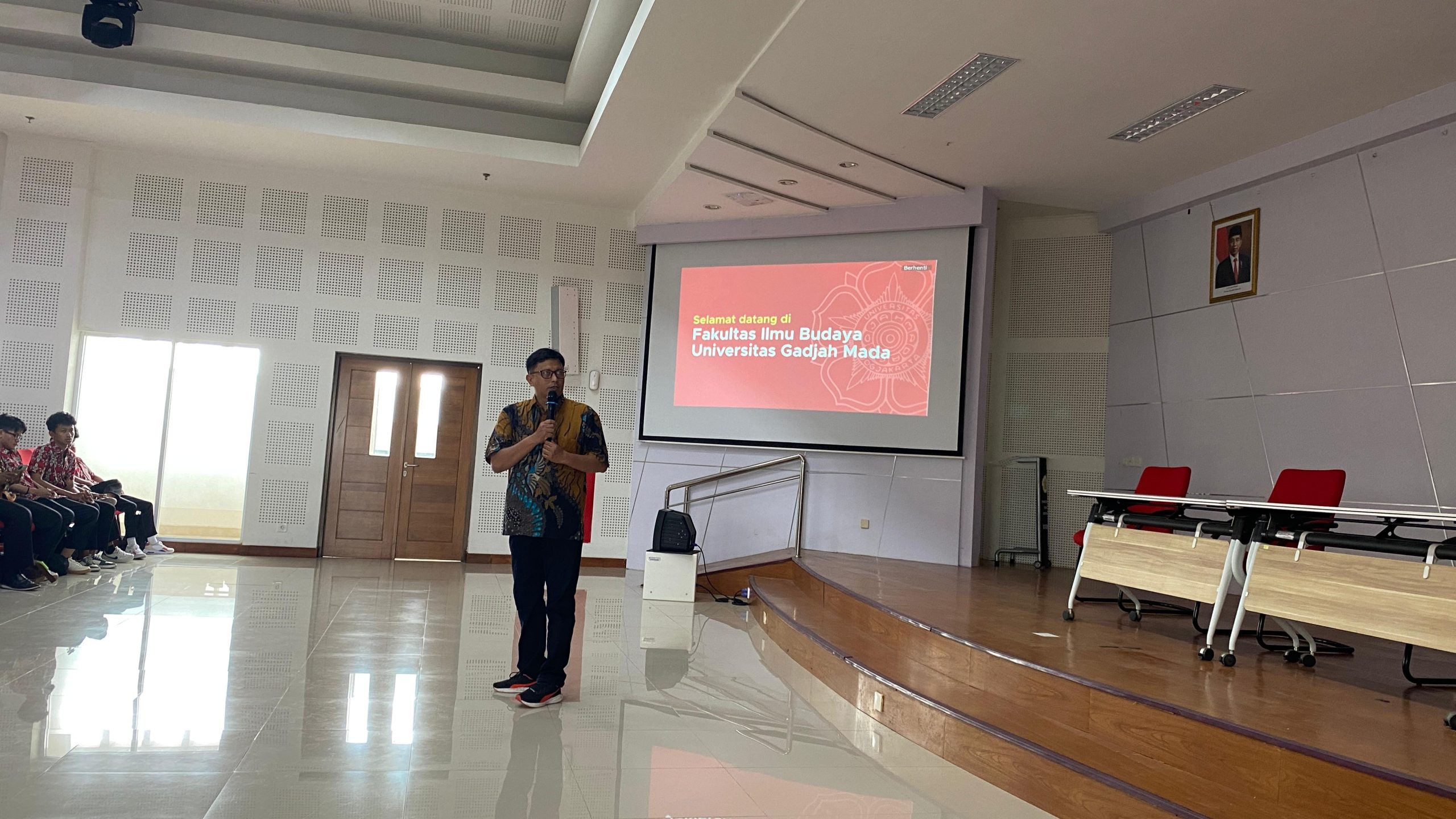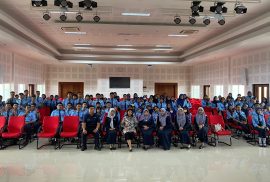Yogyakarta, September 30, 2024 – Faculty of Cultural Sciences Universitas Gadjah Mada (UGM) held a farewell lecture for Prof. Dr. Phil. Vincent Houben, a distinguished professor of Southeast Asian history and society, on Monday morning at the 7th Floor Auditorium of Soegondo Building. The event was attended by students in general, especially UGM history students, as well as Prof. Houben’s fellow lecturers.
In a lecture entitled “Area History in the Age of (De)globalization – a Retrospective and Prospective View,” Prof. Houben discussed the dynamics of regional history in the context of globalization and deglobalization, highlighting how these changes affect historical understanding. In his presentation, he invited students to reflect on the historical journey that has been taken and the challenges that will be faced in the future.
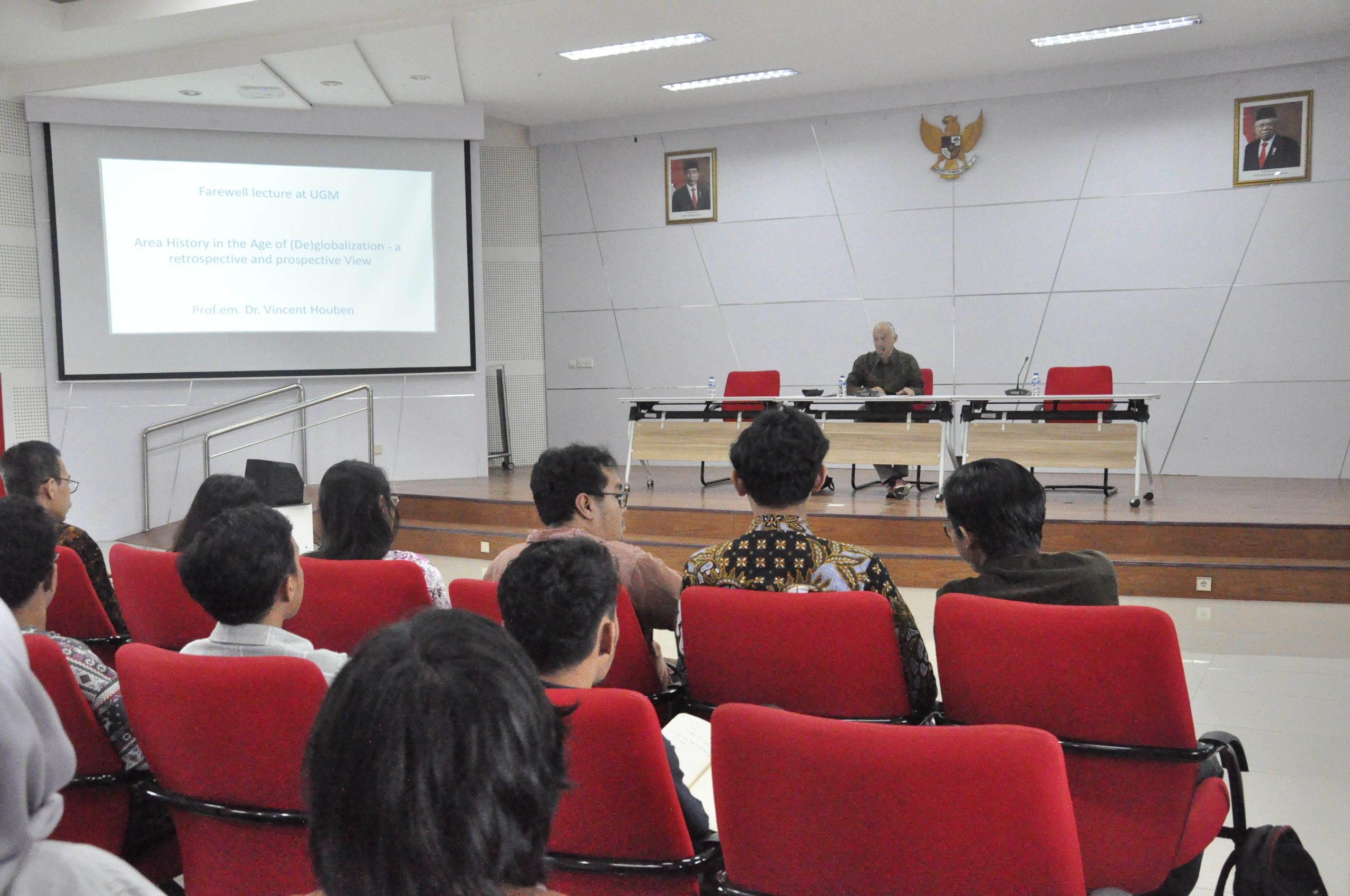
Prof. Houben recounted his academic journey, which began with the study of Indonesian history and Indonesian language at Leiden University from 1980 to 1987. He then continued his career as a lecturer in Indonesian history at Leiden from 1986 to 1997, before entering the maturity phase of his career by becoming a professor at Passau University and Humboldt University until 2022.
This event was a valuable opportunity for students to learn directly from the experiences and insights of an academic who has contributed greatly to the study of Southeast Asian history. With the spirit of sharing knowledge, this farewell lecture is expected to motivate students to continue to explore and develop the field of history in Indonesia. FIB UGM will always remember Prof. Houben’s contribution and wish him all the best for his next journey in retirement and future projects.
